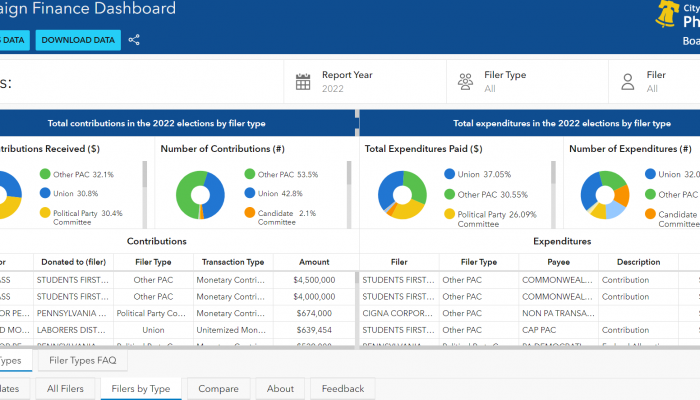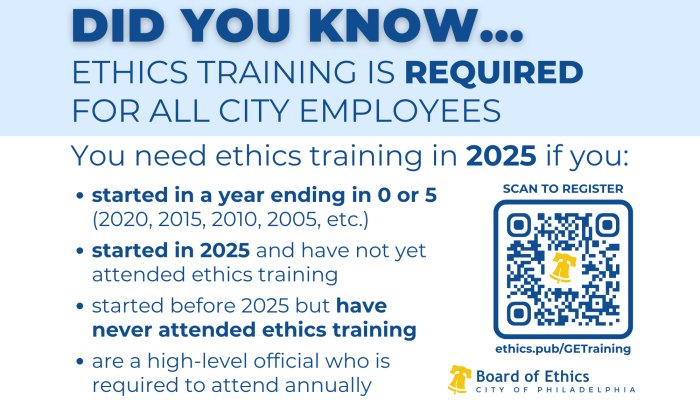For the first time, the City of Philadelphia created an interactive visualization of Philadelphia’s campaign finance data to make it easier for the public to explore. We’ve also created an in-depth video tutorial on how to use the dashboard. To make sure others can do their own analyses, we released the tables that power the dashboard as open data, along with metadata and technical documentation. The data and dashboard includes filings from 2019 to the present.
Some ways to use the interactive dashboard include looking at:
- contributions to or expenditures by individual candidates, as well as other filers like wards, unions, other PACs and more.
- the total contributions raised by candidates compared to each other.
- what ZIP codes candidates received contributions from.
- the flow of money under the ‘Compare’ tab.
Who is the dashboard for?
This data will serve different purposes for different users. Media can use this resource to quickly report on the approximate contributions or expenditures of a particular candidate or other filer. Voters can explore donations candidates received. Political scientists and researchers can analyze trends over time. Candidates may use it to review their own activity or compare with others.
The dashboard and data release is a collaboration between the City’s Board of Ethics (BOE) and the Office of Innovation and Technology’s (OIT) CityGeo team. BOE oversees campaign finance reporting and compliance. OIT assists departments in releasing and visualizing City data for the public to use.
Making campaign finance more accessible
To reach this goal, we used our collective knowledge, technical resources, and improved internal processes, to build new data pipelines to feed the interactive dashboard, and keep it updated daily.
In 2017, the Sunlight Foundation, a former non-profit focused on government transparency, ranked campaign finance data as one of the most high-value datasets that governments nationwide should release. But, as a City, we faced challenges in achieving this. Prior to 2019, an external vendor managed campaign finance data, which created technical obstacles to releasing it as open data.
Today, our ability to release cleaner data and the dashboard is a positive outcome of OIT’s Software Engineering (SE) team’s work. In 2019, the SE team expanded on the vendor’s work, which enabled the development of the new and improved Campaign Finance Filing System to make it easier for filers and a database to capture the data they report.
Since 2019, as part of that work, the City made the unfiltered, raw data inputted by end-users of the app available. Today’s open data release now makes that information more accessible through the dashboard and open data. The open data is enhanced with additional information, and cleaned to reduce duplicate information. This dashboard is in beta – we intend to improve it over time based on the public’s interests and needs.
For questions about the campaign finance law, contact BOE or visit BOE’s resource center.




